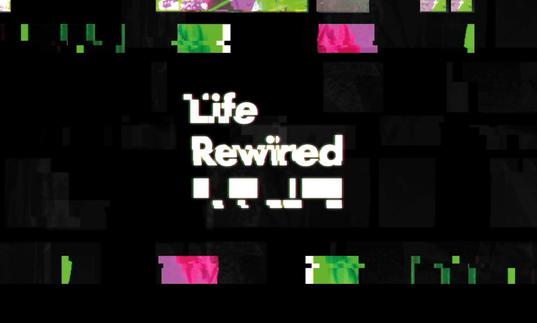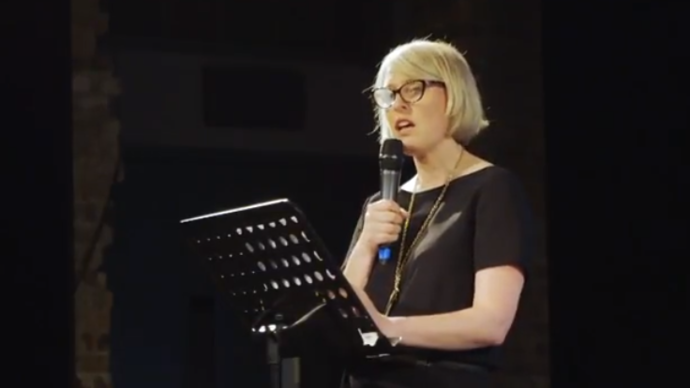There comes a time when the question of whether or not we want to become a parent looms large. For some of us, the urge to expand our family is irresistible, a primal calling, a deep-seated drive to have children. Jessica Hepburn and Gabby Vautier, co-directors of the only arts festival dedicated to fertility and infertility, understand this feeling well. ‘The idea for the festival came from a very personal place, from two women in their 30s facing the same challenge,’ recalls Hepburn. ‘We had gone to university, worked hard at our careers, searched for the right partners, and then found ourselves struggling to conceive naturally. It felt like a fundamental right being snatched away.’
Suddenly this storm of opportunity presented itself and a festival on the subject made all the sense in the world
At the time running the Lyric Hammersmith, Hepburn led a secret life as she began IVF treatment in her bid to become a mother. She wrote about her experiences in private initially but it would be this material that would form the basis of The Pursuit of Motherhood, her first book. Describing her desperation over her ‘unexplained infertility’ and the emotional fall-out from eleven gruelling rounds of treatment, the book touched a nerve, prompting other artists to contact her about their own journeys and the work they were producing as a result. ‘I was amazed by the broad range being created by writers, theatre and film-makers, visual artists, musicians and choreographers,’ Hepburn says. ‘Suddenly this storm of opportunity presented itself and a festival on the subject made all the sense in the world.’
Fortuitously Hepburn came to hear of a play called The Quiet House that her friend and colleague was producing about a couple’s struggle to get pregnant. Gabby Vautier picks up the story: ‘My husband Gareth Farr and I had also been struggling through IVF treatment and had attended a support group where our eyes were opened to the number of people – all ages and backgrounds – sharing the pain of not being able to have a family. When he started writing The Quiet House, a play not about us, but inspired by what we had been going through, I knew we had to do it. The play almost broke us emotionally and financially (a bit like IVF) but people said it helped them face what they were dealing with or better understand what a friend or family member was facing.’ While Hepburn did not get pregnant and Vautier did – she’s now a mum to twin girls – the two women recognised in each other the isolation and trauma inflicted by a treatment that would in the end more likely fail than succeed. ‘I felt as though life was in limbo during the process, that our sadness was catching, and so my husband and I retreated, burying ourselves in work.’
The festival shows that the subject isn’t niche, it’s universal, and touches everyone in some way
Shared experience led to Hepburn and Vautier joining forces and the first Fertility Fest took place in London and Birmingham alongside The Quiet House. The response was positive. Here was an event that uniquely drew together artists, fertility experts, patients and the public to explore issues related to fertility, families and making babies. A second edition was called for, this time broadening out in scope to become a six-day festival tackling the subject in multifaceted ways.
‘The festival shows that the subject isn’t niche, it’s universal, and touches everyone in some way,’ observes Hepburn. ‘We look at reproductive science, modern family making, the options open to LGBT communities, single parenting, egg donation, surrogacy, adoption and involuntary childlessness. Everyone has their own personal story but, on a societal level, we are witnessing how fertility sciences are starting to shape how we actually evolve as a race.’ Another important aspect is how fertility experts, scientists, clinicians, nurses and charities are afforded a rare insight into the patient experience through the medium of the arts. ‘We’re really excited about the third edition at the Barbican, which will be the biggest yet,’ notes Hepburn. ‘Artists are brilliant at articulating stories and provoking thought. If we can influence public debate and understanding as well as the way that fertility professionals interact with patients dealing with fertility issues, then we’re achieving our aim as an organisation for social change.’
Artists are brilliant at articulating stories and provoking thought
As theatre professionals who have worked with young people previously, Hepburn and Vautier are also campaigning to raise standards of fertility education in schools. ‘We know that families today are different to how they used to look and this will continue to change because reproductive science is developing at a dramatic rate,’ points out Vautier. ‘I just wonder why as a society we aren’t talking about it more. We see it everyday – people who would like families but have sketchy information. The place to start is with young people, empowering them to think about the future.’
Their efforts are beginning to pay off, with pilot initiatives they’re involved with spearheading national debate, including the front page of The Times. ‘At school, we’re taught how not to get pregnant but information about the reproductive life cycle, how to maximise your chances of natural pregnancy, the limits of assisted conception and alternative ways to make families is inadequate,’ elaborates Hepburn. The pair hope that a reboot of sex education is on the horizon and are passionate that the arts can be used as a tool to prompt debate. As such, they are in talks with Creative Learning at the Barbican to take the campaign to the next stage as part of Fertility Fest in 2019. The festival also has a new production as its anchor, Avalanche: A Love Story, which draws on the incredibly powerful true story of novelist Julia Leigh. Flourishing into a four-week event, it offers a sense of community, and the chance to share and offload some of the anxiety we wrestle with when weighing up if, when and how to start families.



